| | | | | | | Presented By SiriusXM | | | | Axios Sports | | By Kendall Baker · Jan 17, 2023 | | 👋 Good morning! Super Wild Card Weekend was awesome, and we'll get to all that tomorrow. But for now: a brief recap of my trip to Spain. Today's word count: 1425 words (5 minutes). Let's sports... | | | | | | 1 big thing: Football's friendly rivalry | 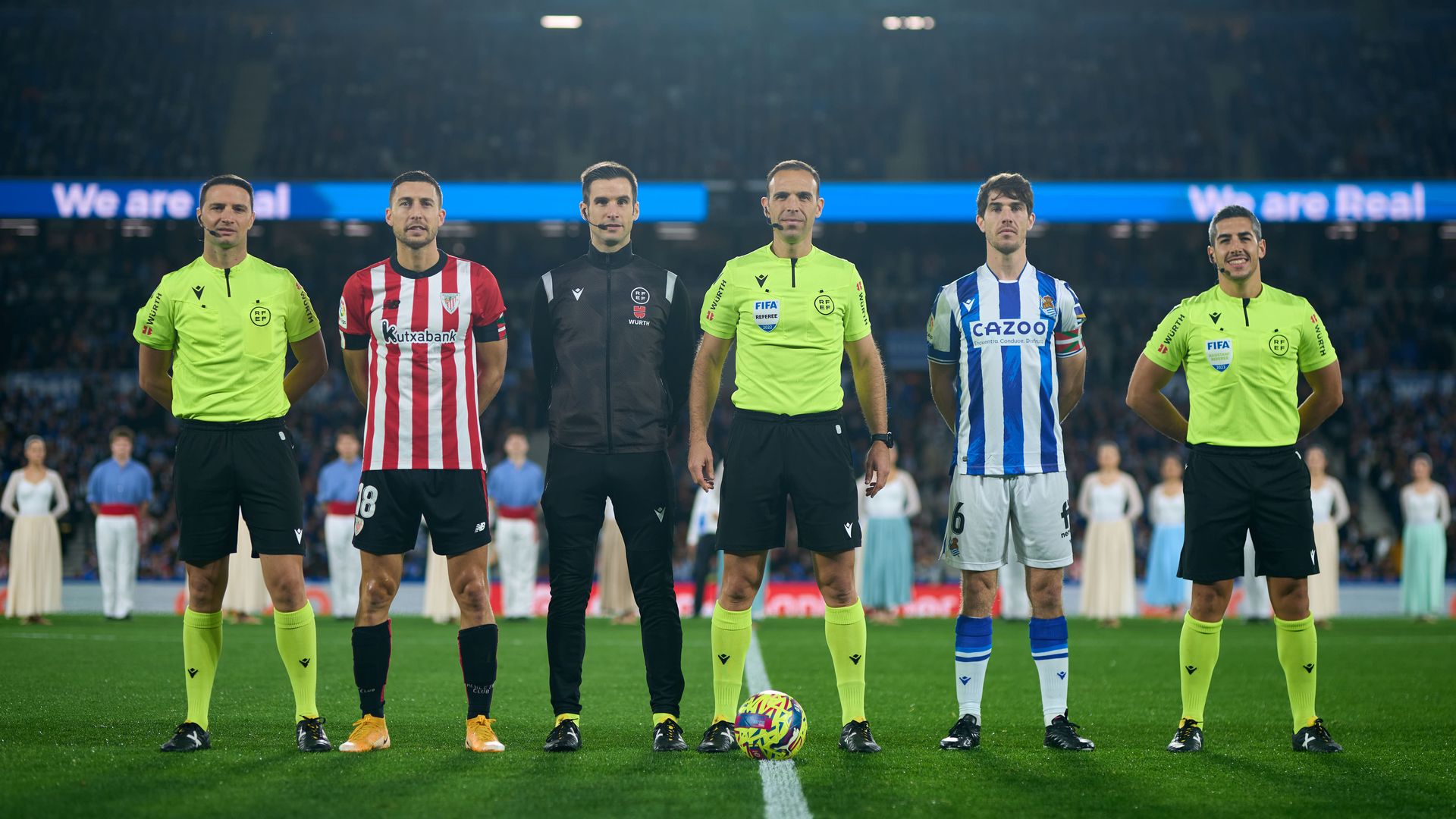 | | | Captains for Athletic Bilbao (red) and Real Sociedad (blue) before the match. Photo: Courtesy of LaLIga | | | | Typically, sports rivalries are bitter, both on and off the field. That's not what I experienced at Saturday's Basque Derby — a sporting event unlike any other. What happened: I was in Spain this past week for a LaLiga match between Athletic Bilbao and Real Sociedad, two rival clubs from the Basque Country. - It was a high-stakes affair, as all derbies are, but this one felt different — special in an almost unexplainable way.
- Fans of both teams sat together — 38,342 total. No yelling at each other, and certainly no fighting. The match was intense, but it wasn't chippy.
- Real Sociedad won, 3-1, to continue their magical season, and thousands of fans in blue and white flooded into the streets of San Sebastián to celebrate.
- Those donning Bilbao's red and white were less jubilant. But even in defeat, they seemed content — fulfilled, even — in a way that had little to do with soccer.
The backdrop: The Basque Country is made up of seven provinces that straddle the Spanish-French border — four in Spain, three in France. - Real Sociedad is based in San Sebastián, the capital of the Spanish province of Guipúzcoa.
- Athletic Bilbao is based in Bilbao, the capital of Biscay and one of the largest cities in Spain.
Between the lines: Few clubs embrace their culture more than these two, which makes their annual derby less of a heated battle and more of a regional celebration. - Saturday's atmosphere was electric, and there was a competitive edge to the game. But there was also a great deal of respect.
- The sense I got from the crowd was less "I hope we destroy our rival," and more "I hope we win, but more importantly, what a night for our little corner of the world."
To fully appreciate the Basque Derby, let's examine both clubs… |     | | | | | | 2. Basque clubs, Basque players | 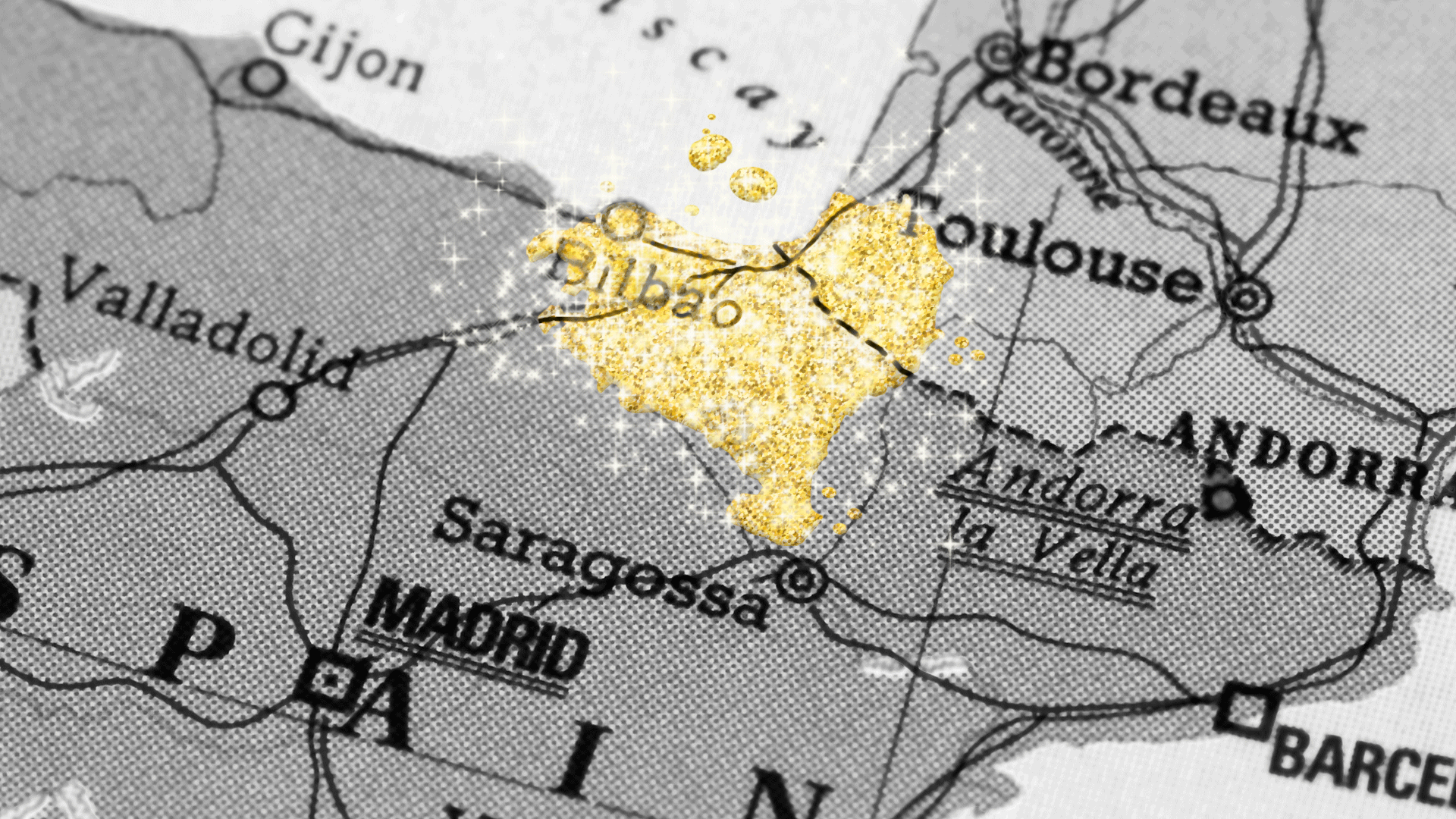 | | | Basque Country. Illustration: Aïda Amer/Axios | | | | Athletic Bilbao — also known as Athletic Club, or simply Athletic — have a philosophy unlike any other soccer club in the world. How it works: Only players who were born, raised or developed in the Basque Country can play for the club. Between the lines: Spain's four Basque provinces have a population of roughly 2.2 million people and make up less than 5% of the country's population, so this policy presents a clear challenge. - But Athletic, founded in 1898, has no plans to ever change it, even as LaLiga's talent pool becomes increasingly global.
- And why would they when it's worked for 125 years? Only three clubs have never been relegated from Spanish soccer's top division: Real Madrid, Barcelona and Athletic.
Real Sociedad — commonly referred to as La Real — once had a Basque-only policy like Athletic, but they broke that tradition in 1989 when England's John Aldridge became their first foreign import. State of play: These days, La Real operates using an 80/60 model. 80% of academy players and 60% of first teams players must be from the Basque province of Guipúzcoa, which is just 760 square miles. - They ended Saturday's derby with seven homegrown players on the pitch — six from Guipúzcoa. Overall, 21 players on the pitch were Basque and 19 came through one of the two club's youth systems.
- That's what makes the Basque Derby so special: I can't think of any other sporting event at this level of competition where the players competing truly represent the fans in the stands to this degree.
Yes, but … Non-Basque players still played a big role on Saturday: Alexander Sørloth (Norway) and Takefusa Kubo (Japan) both scored for La Real, and David "The Magician" Silva (Canary Islands) was his typical playmaking self, setting up Kubo. |     | | | | | | 3. LaLiga snapshot: Where things stand |  Chart: Axios Visuals Barcelona and Real Madrid sit atop LaLiga — per usual. But Real Sociedad, winners of seven straight matches across all competitions, are hot on their heels. - La Real look poised to qualify for the Champions League (top-four finish) for the first time since 2013.
- Bilbao dropped to eighth following Saturday's loss, but they're still just two points out of fourth place.
Of note … Just six clubs have won multiple LaLiga titles: Real Madrid (35), Barcelona (26), Atlético Madrid (11), Athletic Bilbao (8), Valencia (6) and Real Sociedad (2). |     | | | | | | A message from SiriusXM | | Get 3 months free of SiriusXM | | | 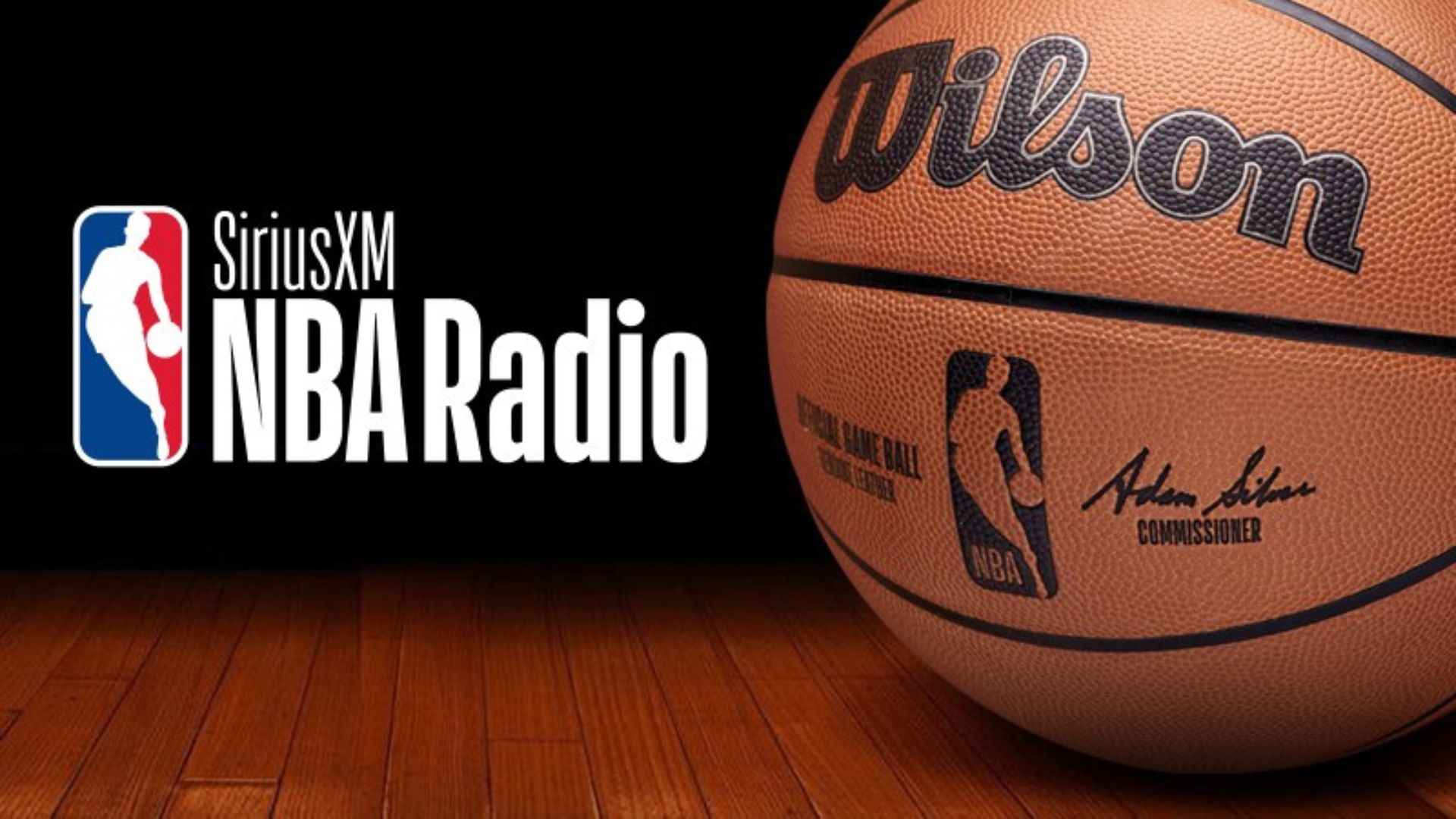 | | | | Stream more than 425 channels on your devices for free on the SXM App, including NBA Radio, expertly curated ad-free music, personalized stations and more. Next steps: Sign up now to get four months free, and you can cancel anytime. See Offer Details. | | | | | | 4. La Real's "Rocketman" | 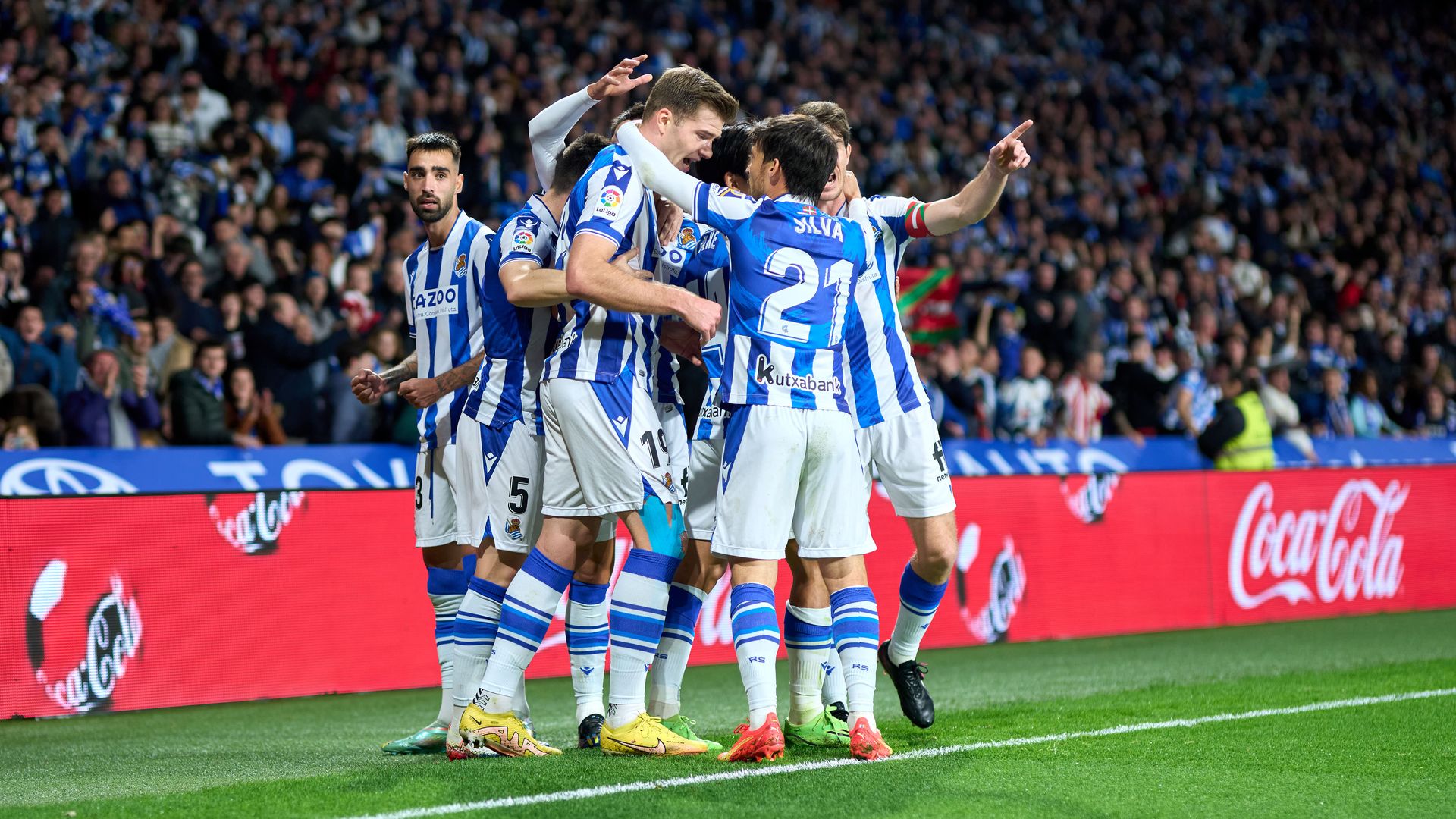 | | | Real Sociedad celebrate the match's opening goal. Photo: Courtesy of LaLiga | | | | When La Real scored Saturday's opening goal, two fireworks went off outside the stadium — part of a tradition dating back a half century. - One explosion means Real Sociedad has conceded a goal.
- Two explosions means the home team has scored.
The backstory: The fireworks, the story goes, began in 1960 as a way of letting the fishermen working in the Bay of Biscay know how La Real was doing. - The new stadium is on the other end of town, so news no longer travels so far out to sea, but the San Sebastián tradition continues.
- Juan Iturralde, an elevator engineer by trade, is the man responsible for sending the flares into the sky. He's served as cohetero — rocketman — since 2006.
Go deeper: NYT profiled Iturralde during the pandemic, when he continued to man his post inside an empty Reale Arena: As soon as the ball crosses the line, Juan Iturralde is on his feet. He darts back inside his suite, heading for the door. He pauses only briefly, to snatch two bottle rockets from a plastic bag placed carefully, deliberately, in his path. Its location is strategic: Iturralde is, essentially, in the news business, and every second counts. He bounds — as fast as his knees will allow — down two flights of stairs, clasping the fireworks by their stalks. He sprints out of Gate 18 ... and onto the street outside. He checks that the coast is clear, slips the first of his two rockets into his hand-held launcher, and breaks his story across San Sebastián's night sky. — Rory Smith, NYT |     | | | | | | 5. The great unifier | 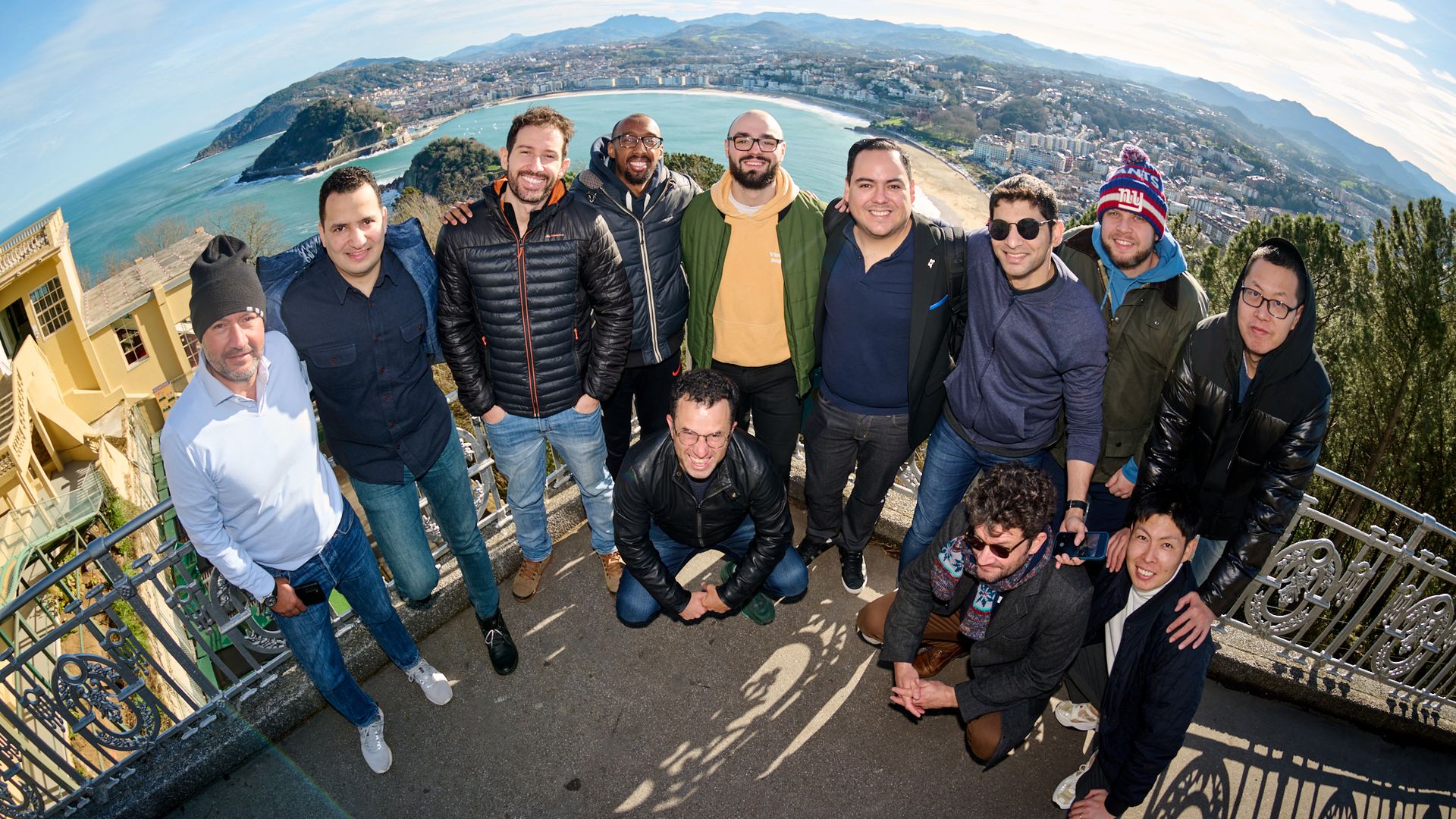 | | | Photo: Courtesy of LaLiga | | | | I've made this point a hundred times, and I'll make it a thousand more: Sports are the great unifier. - Spending five days in Spain with journalists from all over the world and bonding over our shared passion for sports was incredible.
- It's hard to imagine anything else bringing people together like that — and enabling them to genuinely connect so quickly.
Pictured (L to R): José from Colombia, Ahmed from Egypt, Rodrigo from Brazil, Tariq from England, Jonty from South Africa (kneeling), Jonas from Norway, Carlos from Mexico, Osama from India, Ian from England (kneeling), your boy, Paul from China, Yoshi from Japan (kneeling). |     | | | | | | 6. Speaking of my new friends... | | Have you ever tried explaining college sports to a non-American? Only then do you truly realize how absurd the concept is. - High-level athletics being tied to education is completely foreign to most of the world. There's no "getting recruited" to play soccer out of high school in Japan; no basketball scholarships in England.
- The path to the pros outside the U.S. is through youth sports academies, not universities. Some European college students might play sports on campus, but it's basically intramurals.
Once I got finished explaining the existence of NCAA athletics to my colleagues over dinner one night, I moved onto the business model at its core: amateurism. - Jaws hit the floor when I showed a picture of a sold-out college football stadium and some tailgating photos. Jaws went through the floor when I told them that athletes aren't paid.
- I explained that most elite athletes get a free education, and that recent NIL changes allow them to earn money via sponsorship deals. They still thought the whole thing was insane. Because it is!
The bottom line: It's always good to break out of the American bubble. We're weirdos. |     | | | | | | 7. Time zone trivia | | Question: How many hours ahead of Eastern Standard Time is Spain? Answer at the bottom. |     | | | | | | 8. The Ocho: Basque pelota | 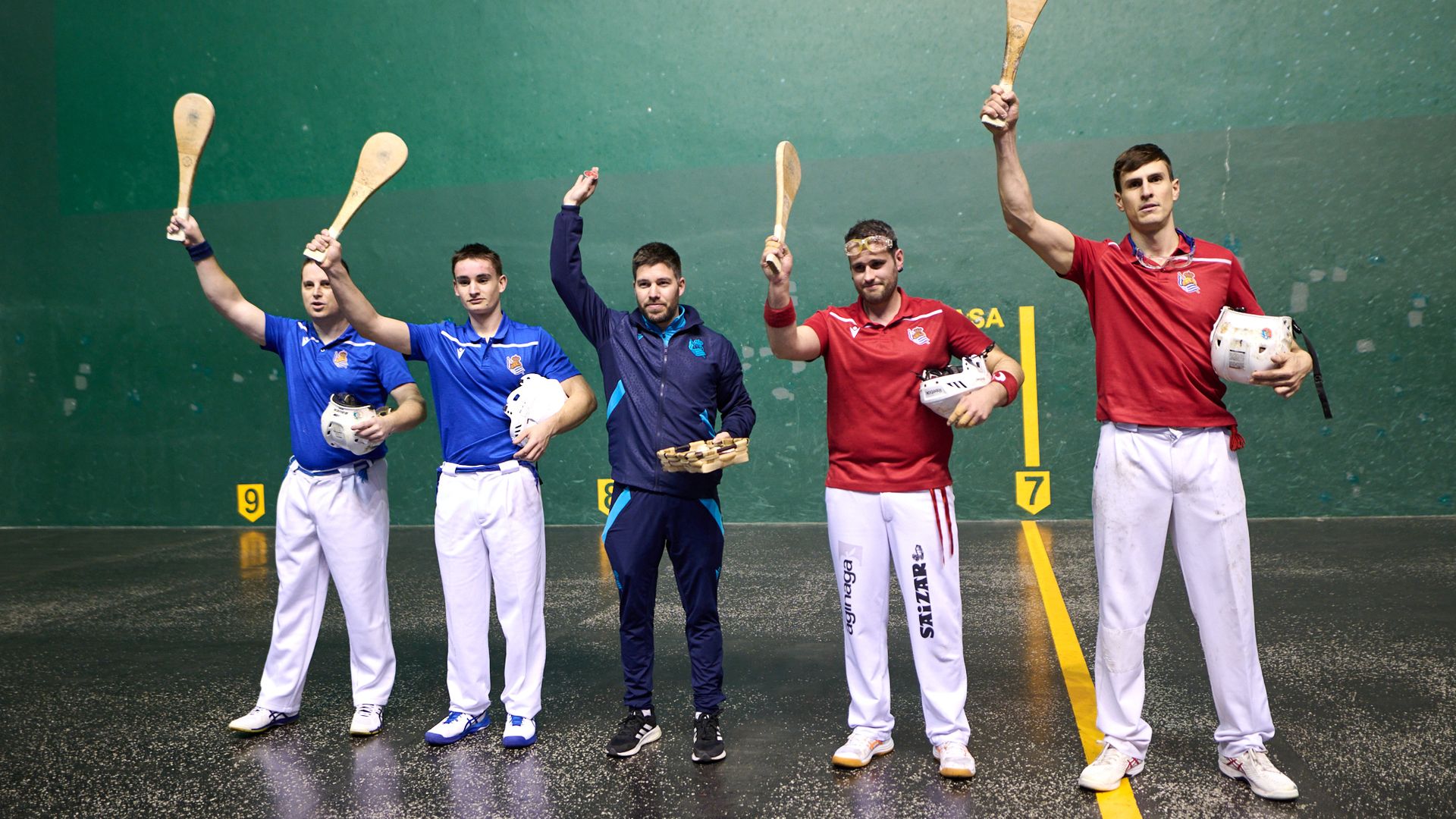 | | | Real Sociedad basque pelota players. Photo: Courtesy of LaLiga | | | | Basque pelota is a handball/racquetball-like sport dating back hundreds of years. It remains hugely popular in the region, with over 100 courts in San Sebastián alone. How it works: The sport is played in various forms — sometimes barehanded, sometimes with paddles, sometimes with curved baskets. - The courts differ in size and shape depending on the version being played (some have two walls, some have three). The types of balls are also different.
- But the rules are generally the same: One team serves the ball against the front wall. The other team must return the ball before it bounces twice.
Fun fact: Jai alai, which became popular in the U.S. last century — especially among bettors — is a variation of basque pelota. We watched a basque pelota demonstration at Real Sociedad's arena. Pictured below is one of the club's players putting on his jai alai equipment. Photo: Courtesy of LaLiga Go deeper: How to play basque pelota (YouTube) |     | | | | | | A message from SiriusXM | | Stream NBA Radio on SiriusXM | | | 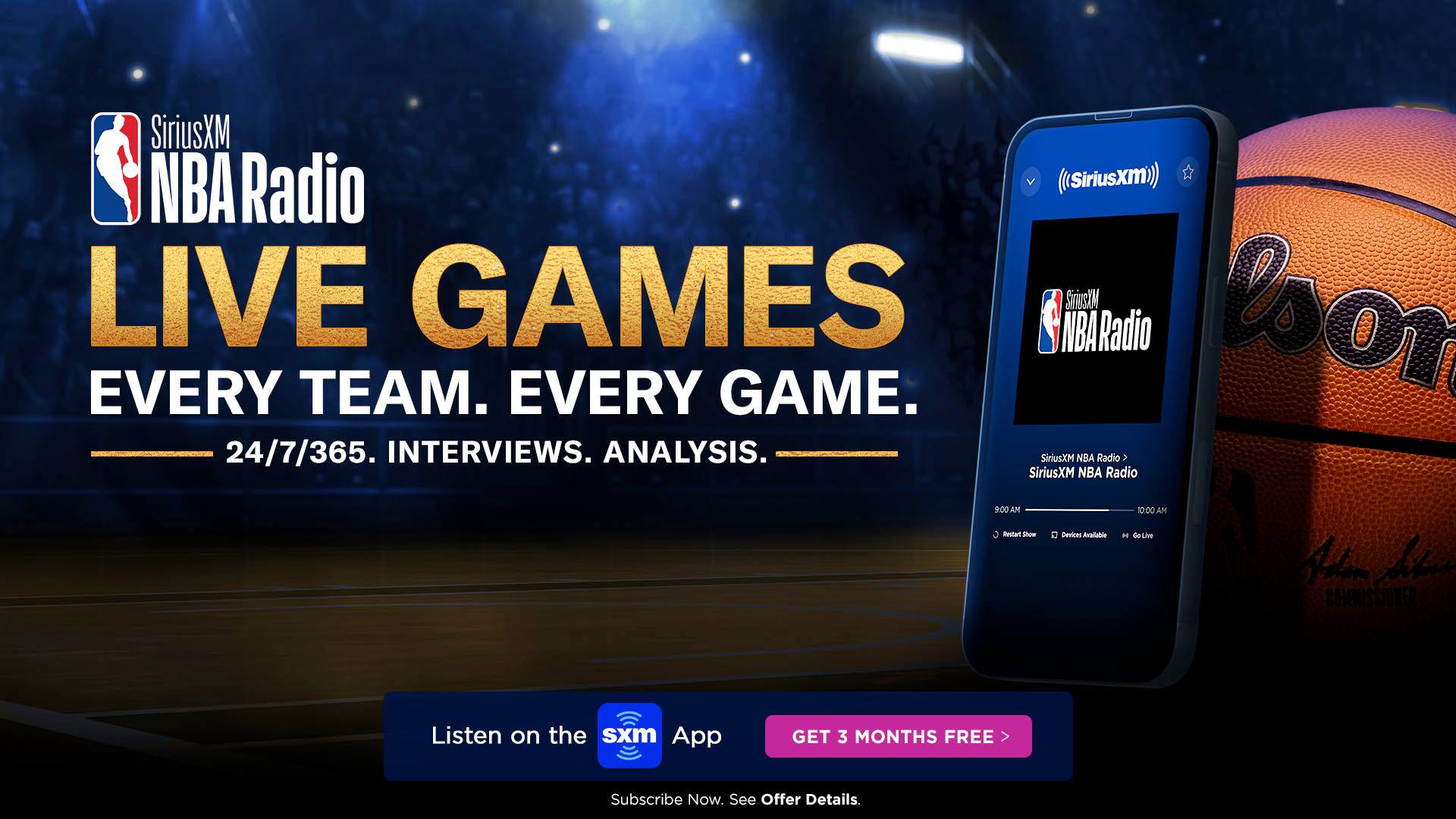 | | | | With NBA Radio on SiriusXM Streaming, hear live coverage of the regular season, playoffs and the NBA finals. What's in it for you: SiriusXM NBA Radio delivers expert analysis and real-time NBA news that true basketball fans need. See Offer Details. | | | | Talk tomorrow, Kendall "Six" Baker 🙏 Have a great day! Follow us for more (@kendallbaker and @jeffreytracy). Friends can sign up here. Thanks to Carolyn DiPaolo for copy edits. |  | | Are you a fan of this email format? Your essential communications — to staff, clients and other stakeholders — can have the same style. Axios HQ, a powerful platform, will help you do it. | | | | | | Axios thanks our partners for supporting our newsletters.
Sponsorship has no influence on editorial content. Axios, 3100 Clarendon Blvd, Arlington VA 22201 | | | You received this email because you signed up for newsletters from Axios.
To stop receiving this newsletter, unsubscribe or manage your email preferences. | | | Was this email forwarded to you?
Sign up now to get Axios in your inbox. | | | | Follow Axios on social media:    | | | | | |
Post a Comment
0Comments